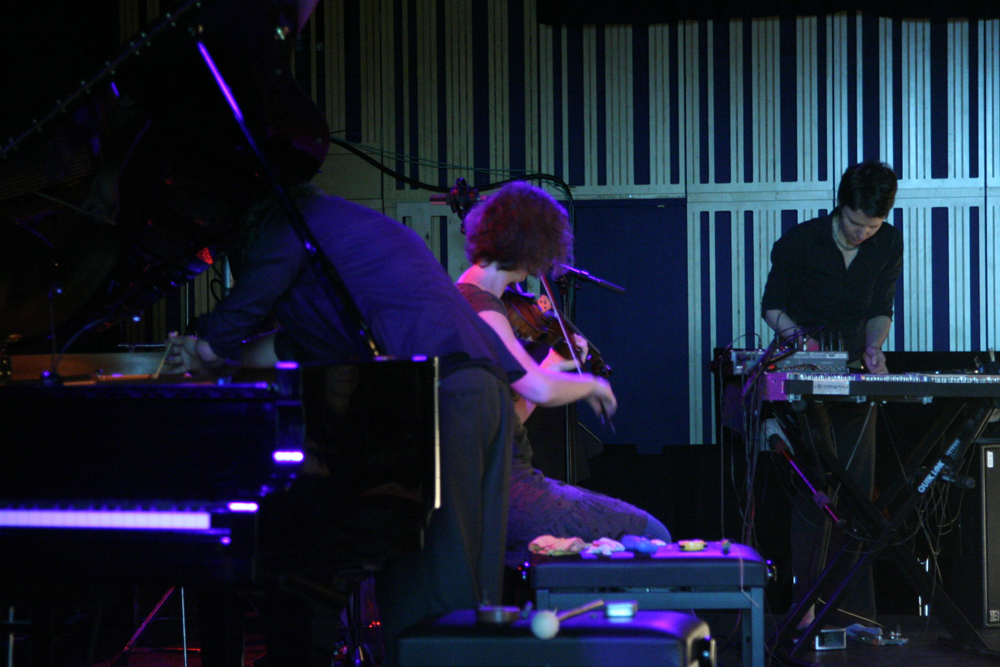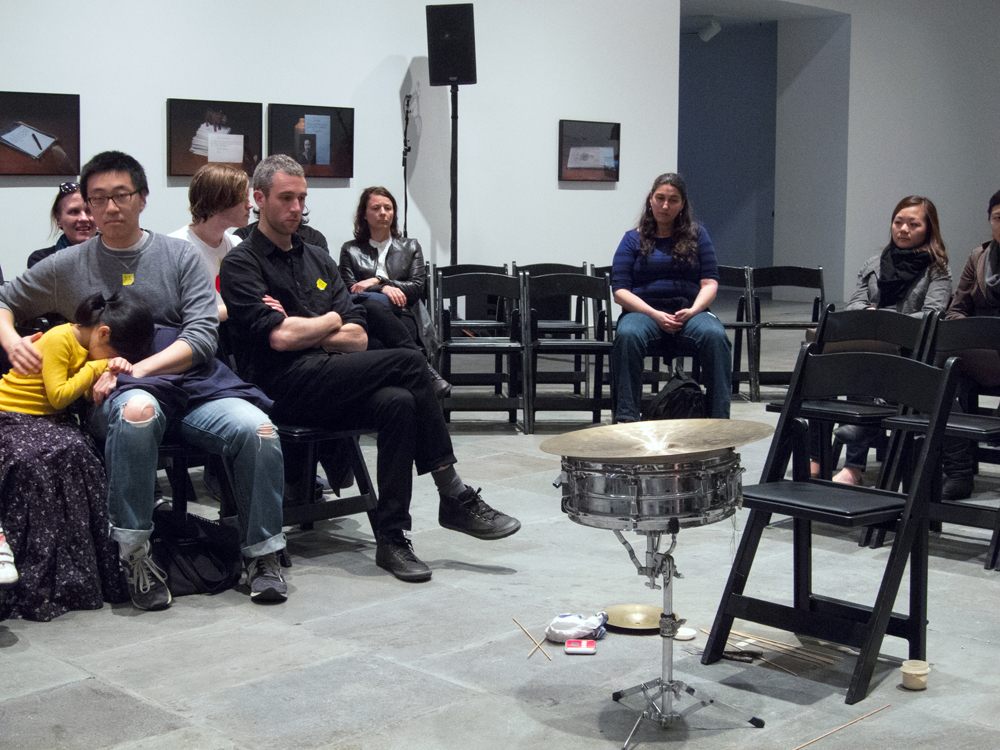
Angharad Davies, Tisha Mukarji, Andrea Neuman
Andrea Neuman Angharad Davies Tisha Mukarji
Improvising violinist Angharad Davies performing with pianists Tisha Mukarji and Andrea Neumann.
Arika have been creating events since 2001. The Archive is space to share the documentation of our work, over 600 events from the past 20 years. Browse the archive by event, artists and collections, explore using theme pairs, or use the index for a comprehensive overview.

Improvising violinist Angharad Davies performing with pianists Tisha Mukarji and Andrea Neumann.

“The miracle of Herman Melville is this: that a hundred years ago in Moby Dick…he painted a picture of the world in which we live, which is to this day unsurpassed.” – C. L. R. James

Percussion used to explore the social construction of space

This set continues on from the Bud Neill inspired clatter using the contents of the Usurper twin’s pockets.

The Echo project is an installation as audio guide for a crowd. And at the same time it’s a private conversation: with you, as one of 20 people in a room, a sort of public intimacy.
Artist Derek Lodge running a specially designed social space, somewhere for conversation, story-telling and interaction.

In 2008 we toured our Kill Your Timid Notion festival of experimental sound and image to London, Bristol and Glasgow, bringing audiences a taste of the previous 5 festival editions.

Introducing and setting intentions for a crip grief transformation and witness altar. A place to sit and breathe, remember our dead, wash our hands and leave offerings to and for loved ones we’ve lost – and for ourselves.

A kind of performed installation of searing noise and silence, where we’re not sure who the performer is, when it starts or ends or even who it’s for.

The mutability of the body and the mobility of identity: queered pop culture, drag, lip-sync and performance.

In rethinking the body, the law, the state, gender, race, violence, care and empathy, how we might give humanness a different future?

Stripping back the domesticated ‘meaning’ of (everyday, mundane, kitchen) tools to reveal “a lexicon of rage and frustration.” Plus an allegorical use of mundane, everyday things as an examination of how meaning is constructed in film.